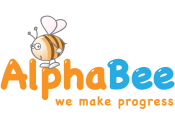Specialized Behaviour Services and Skill-Based Treatment (SBT)
AlphaBee's Skill-Based Treatment (SBT) provides target and focused support for children with ASD.

Could SBT be the missing piece in your child's ASD journey?
At AlphaBee, we understand that every child with Autism Spectrum Disorder (ASD) has unique strengths and challenges. That’s why we offer Specialized Behaviour Services (SBS), a program designed to provide focused and individualized support to children and their families. One of the branches of our SBS program is Skill-Based Treatment (SBT), an innovative approach developed by FTF Behavioral Consulting. In this blog, we’ll explore what SBT is, how it works, and how it can benefit your child.
What Are Specialized Behaviour Services (SBS)?
Our Specialized Behaviour Services (SBS) program is tailored to meet the specific needs of children with ASD and other developmental delays. Using evidence-based practices, our team of trained professionals works closely with families to create personalized and focused intervention plans. These plans focus on improving communication, social skills, behaviour regulation, and daily living skills.
SBS is not a one-size-fits-all approach. Instead, it is designed to address the unique needs of each child, ensuring they receive the support they need to thrive.
What Is Skill-Based Treatment (SBT)?
Skill-Based Treatment (SBT) is an advanced approach within Applied Behaviour Analysis (ABA) that focuses on teaching children essential skills while reducing interfering behaviours. Developed by FTF Behavioral Consulting, SBT emphasizes:
● Building communication and toleration skills.
● Teaching children how to handle situations that may trigger interfering behaviours.
● Promoting independence and confidence in daily living, academic, and play/leisure activities.
SBT is a compassionate and child-centered approach that prioritizes the well-being and growth of each child.
How Does SBT Work?
SBT is a structured, step-by-step process that involves:
- Practical Functional Assessment (PFA): Identifying the reasons behind interfering behaviours by understanding the child’s needs and triggers.
- Skill Building: Teaching replacement behaviours and essential skills, such as communication, tolerance, and cooperation.
- Generalization: Helping children apply these skills in different settings and situations.
The goal of SBT is to give children the tools they need to navigate their world successfully while reducing the need for interfering behaviours.
What Are the Benefits of SBT?
Skill-Based Treatment may help children with ASD in several ways, including:
- Improved Communication: Children learn to express their needs and feelings effectively.
- Reduced Interfering Behaviours: By addressing the root causes of behaviours, SBT helps children develop healthier ways to cope.
- Increased Independence: Children gain confidence in their ability to handle everyday situations.
- Generalization of skills: to family members and other caregivers
While every child progresses at their own pace, SBT has shown promising results in helping children with ASD reach their full potential.

AlphaBee’s Expertise in SBT
At AlphaBee, we are proud to offer SBT as part of our Specialized Behaviour Services. Our team has received comprehensive training from FTF Behavioral Consulting, the creators of SBT. This ensures that we provide the highest standard of care to our clients.
Our SBT program is designed to:
- Address the unique needs of each child.
- Collaborate closely with families to ensure consistency and support.
- Create a positive and nurturing learning environment.
How SBT Complements Our Specialized Behaviour Services
SBT is a natural fit for our Specialized Behaviour Services because it aligns with our commitment to individualized, evidence-based care. By combining SBT with other therapeutic approaches, we create a comprehensive intervention plan that supports all areas of your child’s development.

Frequently Asked Questions About SBT
Here are answers to some common questions about Skill-Based Treatment:
What is Skill-Based Treatment?
Skill-Based Treatment (SBT) is an ABA-based approach that focuses on teaching children essential skills while reducing interfering behaviors.
What is the SBT Program in ABA?
Skill-Based Treatment (SBT) is utilized within ABA services to reduce interfering behaviours and increase skills. It’s a comprehensive approach that focuses on teaching children essential communication, toleration, and contextually appropriate behaviors while addressing behaviors.
Will I see an increase in interfering behaviour at home or in other settings when my child starts SBT?
It’s possible that you might notice a temporary increase in interfering behaviours outside of the SBT sessions when your child is first getting used to the new routines. This can happen because they’re learning new ways to communicate their needs and may initially find it difficult to adjust back to other environments.
However, there are several things we do to minimize this! We’ll make sure your child has clear cues about when it’s “SBT time” versus “regular time.” We’ll also work with you to find ways to make their everyday environment more engaging and enriching. As your child progresses in the program and builds skills in areas like tolerating transitions and engaging in appropriate behaviours, you should see these behaviours decrease and their overall ability to cope improve.
Why does SBT need to be done by specialized staff? Can’t my regular therapist or instructor do it?
SBT involves a lot of real-time decision-making about when to increase demands, when to offer support, and how to build trust and rapport with your child. Because of this, it’s important to have someone with specific training and experience in SBT implement the program, especially at the beginning. Over time, as your child progresses, we can explore ways to involve other members of your team!
Does SBT mean my child won’t be able to participate in regular ABA sessions?
The goal of our Specialized Behaviour Services program, including SBT, is to help your child overcome the challenges that might be preventing them from being successful in regular ABA sessions. Unless we’ve discussed a different plan with you, our aim is to gradually transition your child from SBT to regular ABA sessions with an Instructor Therapist as they develop the necessary skills and are ready for that step.
The communication used in SBT seems a little different. Is that normal?
Yes, that’s perfectly normal! In SBT, we might intentionally use slightly different language than what your child is used to. This is because we want to teach the new routines from scratch, without any previous associations or expectations getting in the way. As your child progresses, we’ll gradually make the language more natural and conversational, so it aligns with what they’d typically experience at home, school, and in the community.
What exactly is a CAB?
CAB stands for Contextually Appropriate Behaviour. In addition to teaching communication and tolerance, SBT also focuses on teaching these CABs. Some examples of CABs we commonly work on in SBT include:
- Giving up favorite items or activities when it’s time to transition
- Transitioning to a specific place to work on a task
- Completing academic assignments
- Engaging in leisure activities appropriately
- Completing chores or household tasks
- Independently completing self-care tasks
In SBT, is it okay to say “no” to my child sometimes?
Absolutely. While SBT focuses on building communication and problem-solving skills, there are definitely times when saying “no” is necessary. This is especially true when it comes to ensuring safety (like stopping dangerous behaviours), enforcing important rules and routines (like bedtime or mealtimes), or responding to requests that just aren’t realistic.
Instead of just saying a flat “no,” try to guide your child with clear explanations and alternative solutions. You could offer them choices, use the phrase “Yes, but later,” or acknowledge their feelings before redirecting them. The goal isn’t to eliminate the word “no” entirely, but to teach your child flexibility and problem-solving skills.
Skill-Based Treatment (SBT) is a powerful tool that may help children with ASD develop essential skills and reduce interfering behaviours. At AlphaBee, we are proud to incorporate SBT into our Specialized Behaviour Services, ensuring that each child receives the personalized support they need to thrive.
Contact Us
If you’re interested in learning more about SBT or our other services, visit our Specialized Behaviour Services page or contact us using teh contact form below. Together, we can create a brighter future for your child.

